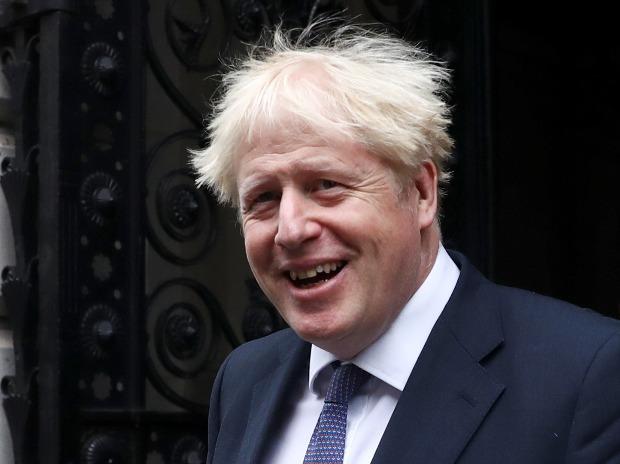NEW DELHI, Apr 19: For the second time, the British prime minister Boris Johnson on Monday cancelled his visit to India scheduled on April 25-26, “in view of the prevailing Covid situation in India,” both the governments announced.
The decision was taken after weeks of discussions over how to proceed with the visit despite the pandemic, and last week officials had said he would cut short the duration and limit his travel to Delhi. With no let-up in the surge of cases in India, however, officials in London and Delhi decided by “mutual agreement” to call off the trip.
In January when he was due to be the chief guest at the Republic Day parade in Delhi, Johnson had deferred his visit till April in view of the sudden surge in the Corona situation in the UK then.
“I do think it’s only sensible to postpone, given what’s happened in India, the shape of the pandemic there,” Johnson told reporters, adding that while it will be ‘frustrating’ to hold the summit via video conference, he hoped to meet Prime Minister Narendra Modi “when circumstances allow”, and expressed “massive amounts of sympathy” for India during the crisis.
“The two sides will be holding a virtual meeting in the coming days to launch plans for a transformed India-U.K. relationship,” the Ministry of External Affairs official spokesperson said in a statement.
“Both leaders attach the highest importance to taking the India-U.K. partnership to its fullest potential and propose to remain in close touch in this regard and look forward to an in-person meeting later in the year.”
On Sunday, British Opposition parliamentarians had called on Johnson to cancel his trip in view of reports of the “double mutant” strain originating in India. Johnson said a decision on whether to include India in the “red list” of countries from which travel is banned would be taken by the UK Health Security Agency.
While the virtual summit is expected next Monday, Modi has also been invited to the U.K. to attend the G-7 summit in mid-June in Cornwall, where India is a special invitee and the COP climate change summit in Glasgow in November. The G-7 meeting is considered important as it will also be a possible venue for the four-nation Quad summit with the U.S., Australia and Japan, that U.S. President Joe Biden has been keen to convene.
Prior to that, Modi is expected to travel to Porto, Portugal for the E.U.-India summit on May 8, and also visit France at the same time. Officials said at present, both visits are still on. It is unclear whether Japanese Prime Minister Yoshihide Suga, who was due to visit Delhi soon after Johnson, will still do so. Several other visits, including that of Rwanda President Kagame, Danish PM Frederiksen and Australian Foreign Minister Payne have also been cancelled in the last few weeks.
In the run up to this visit, a number of agreements have been negotiated, and are expected to be announced now at the virtual summit, including an Enhanced Trade Partnership agreement to launch negotiations towards a comprehensive trade deal, as well as a “2030 Roadmap” to set the course of ties in a number of areas. In March, the U.K. unveiled its first ever “Integrated Review of Security, Defence, Development and Foreign Policy” to revamp its international outlook with a decided focus on the Indo-Pacific region.
“Our vision is for re-energised trade and investment, rooted in S&T and supporting levelling up in the U.K. and India alike; enhanced defence cooperation that brings a more secure Indian Ocean Region, building on the existing biannual Ministerial Defence Dialogues; and U.K.-India leadership to tackle global challenges like climate change, clean energy and global health,” the document had said about the proposed ties with India.
(Manas Dasgupta)

